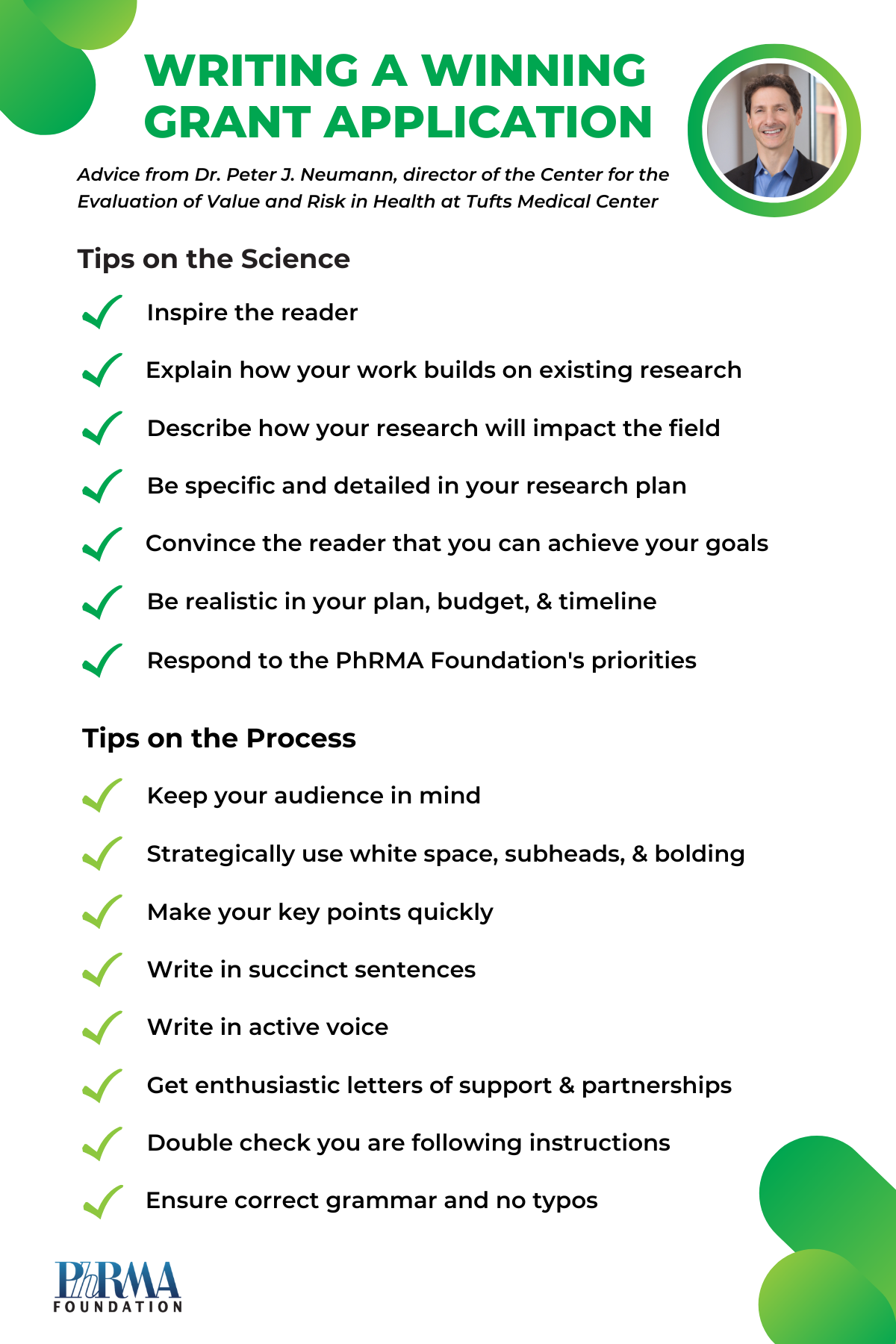Communicating Your Research: Tips for Writing a Winning Grant Application
November 1, 2022Writing a fellowship or grant application can be intimidating — especially if you’re new at it.
For many of the researchers who win PhRMA Foundation awards, it is their first grant or fellowship.
The Foundation is committed to catalyzing the careers of promising young researchers, both through competitive awards and education and networking opportunities. Last week, the Foundation hosted a webinar introducing its newly combined Value Assessment and Health Outcomes Research (VA-HOR) Program and providing tips for researchers on writing grant applications (see infographic below).
The Foundation’s VA-HOR program will fund predoctoral students, postdoctoral trainees, and early-career faculty working to define and measure the value of health care interventions to ensure health care decisions are guided by the best possible evidence.
Foundation President Amy M. Miller, PhD, said that given the overlap in value assessment and health outcomes research, combining these programs was a logical decision that allows the Foundation to expand its investment to fund researchers across the academic lifecycle.
Peter J. Neumann, ScD, director of the Center for the Evaluation of Value and Risk in Health (CEVR) at Tufts Medical Center, shared his insights on applying for the VA-HOR fellowships and grants as a former PhRMA Foundation scientific advisory committee member and value assessment expert. He talked about his advice on both “the science” (what to consider while crafting the research proposal) and “the process” (ways to improve your application).
“We are seeing lots and lots of grant submissions,” he explained. “I’m looking for really creative ideas — ideas that are different than I’ve seen elsewhere.”
A good application should have realistic goals and convince him that the researcher can achieve those goals. “It’s not enough to have a great data collection strategy or great analytics techniques — though those are necessary — I want to know how the work will advance the field,” he said.
Reviewers are often reading through many, many grant applications at the end of a long day. “Put yourself in the mind of the tired yet committed and eager reviewer,” Neumann said. It’s helpful to make your key points quickly and strategically use white space, subheads, and bolding to emphasize important content.
Finally, he emphasized the importance of mastering the communications basics: follow the directions, use active voice, write in succinct sentences, and ensure proper grammar and no typos or misspellings.
See the infographic below for the complete list of tips.

